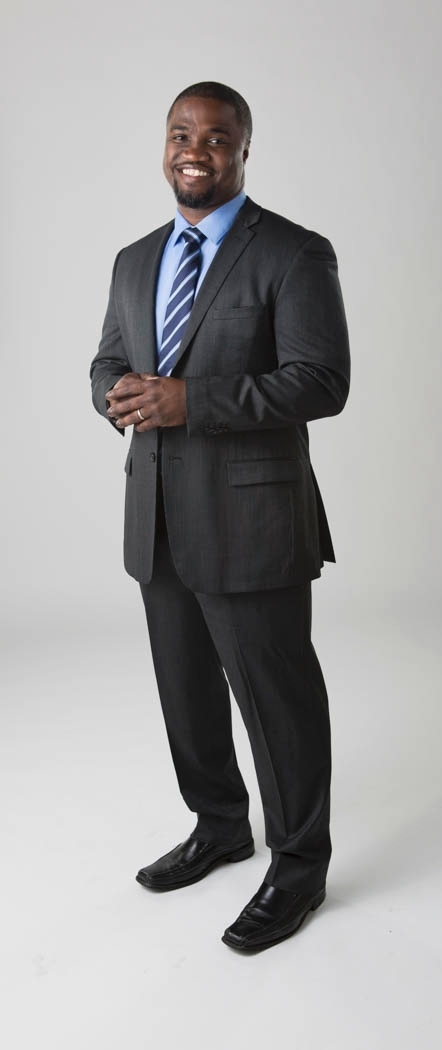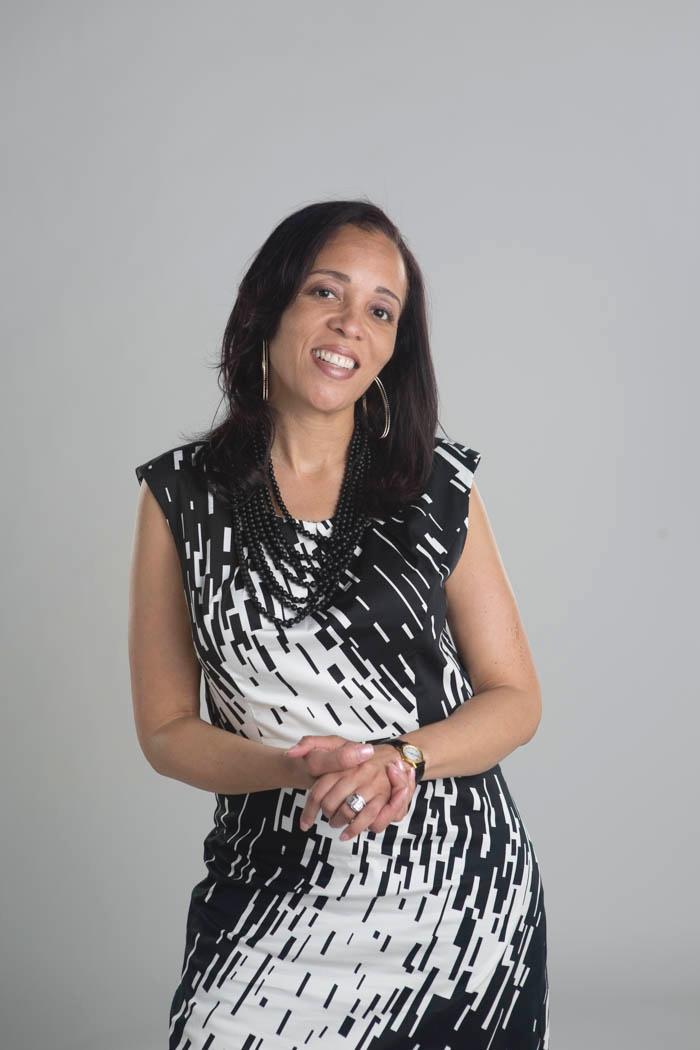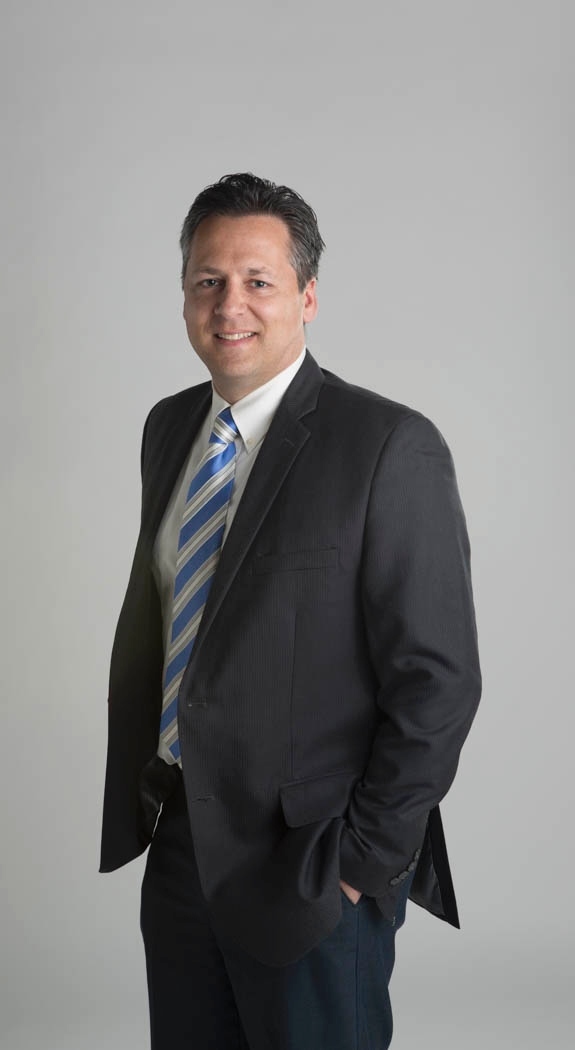Evolving as a professional
Grand Valley career paths aided by unique programs, mentors and networks
by Michele Coffill
photos by Bernadine Carey-Tucker
A generation ago, workers sought jobs and vied for promotions that led them on a career path that required an upward, straight climb and resembled a hill.
The winding path today’s workers take resembles a meandering road of short hills, straightaways and curves. Kim Monaghan called it a roller coaster. Monaghan is the on-site career contractor for Grand Valley’s faculty and staff members, helping them identify their strengths and engage the necessary resources to support their professional development goals.
“I’ve seen professionals at Grand Valley move from department to department, change titles and try something completely different to get a foothold somewhere,” Monaghan said. “It’s a roller coaster ride in their career journey.”
Monaghan said in order to meet one’s career goals it’s first important to recognize that the path may not be in a straight line and to be open to opportunities. For MarcQus Wright it meant being prepared to tell his supervisor the truth when he was asked, “What is it you would like to do?”
Wright started working at Grand Valley in 2005 as a living center director, an entry-level job for people who want to work in student services, which includes an array of fields such as advising, housing, student life or inclusion advocacy. He began prepping his career path early by giving presentations at conferences and advising student groups. “My wife and I didn’t have any kids at the time, so I was more mobile and I was trying to do everything,” Wright said.
He pitched the idea of bringing a professional development assessment tool, True Colors International, to campus and became a trained facilitator; and in 2009 Wright enrolled in a higher education doctoral program offered jointly by Eastern Michigan University and Grand Valley. “My philosophy is to always be planning for your next move. Be great where you are, but prepare for the next opportunity,” he said.
Wright’s next opportunity was working as assistant director of camps and conferences, organizing people who come to campus for short stays during the summer. While he enjoyed that role, Wright missed the direct contact with students. So when his supervisor, Andy Beachnau, asked about his career aspirations, Wright was ready.

MarcQus Wright, director of Student Support Services
“Andy asked me if I enjoyed the work I was doing. He pulled me into a conversation about goals,” Wright said. “It depends on the relationship you have with your supervisor, but I felt very comfortable talking openly with him.”
“My philosophy is to always be planning for your next move. Be great where you are, but prepare for the next opportunity." — MarcQus Wright, director of Student Support Services
Beachnau started his career at Grand Valley in 1982 as a living center director, like Wright. Now as associate vice provost for Student Affairs and director of Housing and Health Services, Beachnau takes a tremendous amount of time to talk with his staff and help them prepare for career moves.
“Our housing staff is largely under 30, it’s the first job for many and they tend to stay a hall director and live on-campus for two, three years,” Beachnau said.
To aid their professional development, Beachnau created an externship program for housing staff members that allows them to gain experience by working 10 hours a week for another campus department.
“This is a win-win-win. It’s a win for the employee, the department and the university,” Beachnau said. “People around campus like to work with housing staff because they are familiar with facilities, student contact, supervision, budgets and assessments.”
For staff members at the mid-career level, Beachnau worked with others in the Division of Student Services to create a leadership seminar series. “Grand Valley has traditionally not been very good with succession,” he said. “But it’s much easier to put resources and time into a mid-level staff member than it is to begin a search for someone new.”

Sharalle Arnold, associate director, Women's Center
Sharalle Arnold has worked at Grand Valley’s Children’s Enrichment Center for 11 years, beginning as assistant director and then as director. She took advantage of the leadership series and served an externship in the Career Center after being prompted by a question — “What’s next for you?” — from Beachnau during a meeting.
“I told him I felt like there are 12 different doors representing different aspects of student services, and I need to figure out which one fits me best,” Arnold said.
During the early weeks of her Career Center externship, Arnold shadowed other staff members as they reviewed resumes with students or had consultations. Soon Arnold was flying solo, yet drawing on her background as an instructor for a Liberal Studies course and as a supervisor of student and full-time employees. “The thing about advising is it’s very much about relationship building. You want the student to feel comfortable and you need to be a good listener because they need a space to be heard,” she said.
When Arnold taught a Liberal Studies career exploration course she used her own experiences as an example, including the process of figuring which student services door fit her best. The process led her to apply and successfully be named the new associate director of the Women’s Center.
“In life, we think the next big thing is to go up. But it’s not always a bad thing to take a step sideways or down as long as you continue to make an impact,” she said. “I feel that this externship has exposed me to things and built up my confidence to go out and apply, interview and eventually get that position.”
Work experience and degrees in engineering and educational leadership helped Chris Plouff transition from working in the Career Center to serving an endowed professorship to, soon, a new job working in the Provost’s Office.
Plouff started working as assistant director in the Career Center in 1997, advising engineering students as they prepared for co-op experiences. He was soon promoted to associate director then applied for and was named director of the department a few years later. Plouff laughed when he recalled saying something during that interview that he used to caution students against.
“In life, we think the next big thing is to go up. But it’s not always a bad thing to take a step sideways or down as long as you continue to make an impact." — Sharalle Arnold, associate director, Women's Center
“I expressed an interest in teaching, which goes against what I would have coached students to say during interviews because I want them to be focused on the job at hand,” Plouff said.
For Plouff, his statement opened a door to co-teach a first-year engineering course with Paul Plotkowski, dean of the Padnos College of Engineering and Computing. Eventually his passion for teaching led Plouff to begin a doctoral program.
“I knew a doctorate in higher education leadership would serve me well in my work with students. It was tough, we had two children under 5 at that time, and it was weekend courses, every weekend,” Plouff said.
The EMU/GVSU doctoral program gave Plouff experience in qualitative research that was new to him after years of working in the quantitative world of engineering. “That was intentional so I would have an understanding about qualitative research and be able to stretch my knowledge base,” he said.
While in the Career Center, Plouff maintained networks within engineering. Monaghan, the career coach, called that building a mutually beneficial relationship. “People need to get out of the silo of their fields; they need to network and learn,” she said. “This helps build a diverse mindset and skillset of experiences.”
Plouff’s work philosophy mirrors Monaghan’s advice. “I was active professionally in the state and nationally, taking advantage of opportunities,” he said.

Chris Plouff, assistant vice president for Academic Affairs (2016)
The next opportunity was risky, Plouff said. A gift from donors James R. and Audrey M. Sebastian created an endowed engineering faculty position for teaching and developing the curriculum to better prepare students for the workforce.
“It was sort of a big risk to apply. I had established myself as director and, if I got that role, I would be a faculty member going through the tenure process,” he said.
He was selected to serve as the first Sebastian chair and soon Plouff found himself guiding the School of Engineering through an accreditation process. Because of his leadership and expertise, Plouff was asked to serve as the school’s interim director and also nominated to serve on university committees for strategic planning and assessment.
That path led to Plouff’s latest appointment, assistant vice president for Academic Affairs. His role next year in the Provost’s Office will be to oversee university strategic planning, assessment and accreditation.
Looking back at his path, Plouff said he did things he would advise students to do: build networks, take advantage of opportunities and evolve professionally. “Most people don’t give themselves the credit they deserve. You likely have the background and skills to try a new job, but you may not think that you do,” he said.
Wright, too, found himself soaking up information from his network of people and resources to build his career. At one point, he was splitting his time between Housing, the Student Academic Success Center and the Women’s Center to better understand the role of an advisor.
He has since landed a job that at one time couldn’t imagine: director of Student Support Services, a federally funded TRiO program that provides support and resources for first-generation students. “My dad is director of the same department at Northern Illinois University, and I used to say to him, ‘You have a very difficult job, I don’t know if I would want to do that,’” Wright said.
"You likely have the background and skills to try a new job, but you may not think that you do." — Chris Plouff, assistant vice president for Academic Affairs (2016)
He said he now thrives on helping students get the necessary resources to succeed. “I have built relationships with people who work in student employment, registrar’s office, Career Center, multicultural affairs, you name it. When I’m talking with a student who has a concern, I don’t refer them to an office, I refer them to a person in that office,” he said.
Professional development encompasses many opportunities from networking to earning additional degrees. Beachnau called it “practice taking on leadership.”
“Institutional knowledge is worth a lot. It pays to keep a good employee and allow them to develop their goals,” he said. “It comes down to a sense of belonging. People will persist if they feel they belong.”
